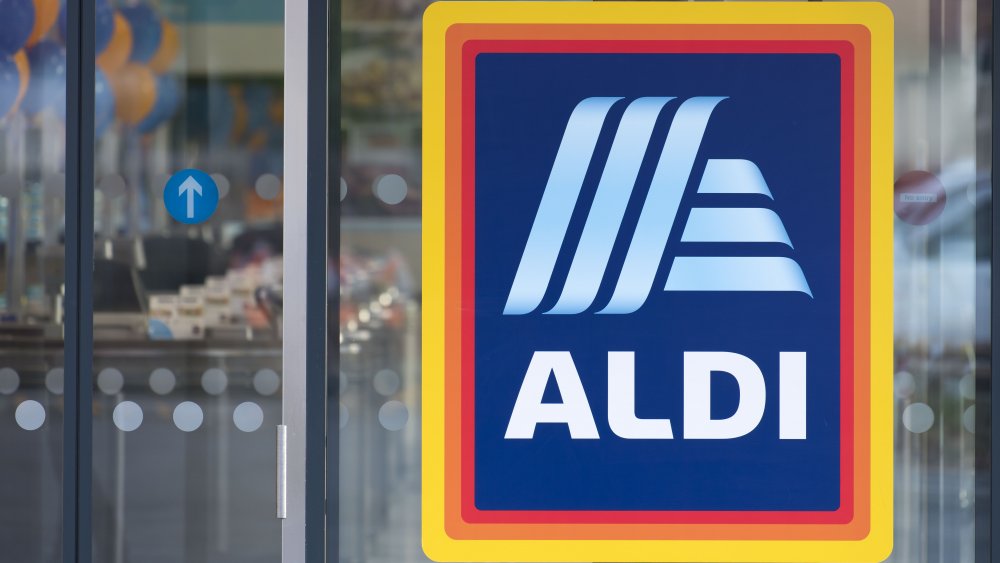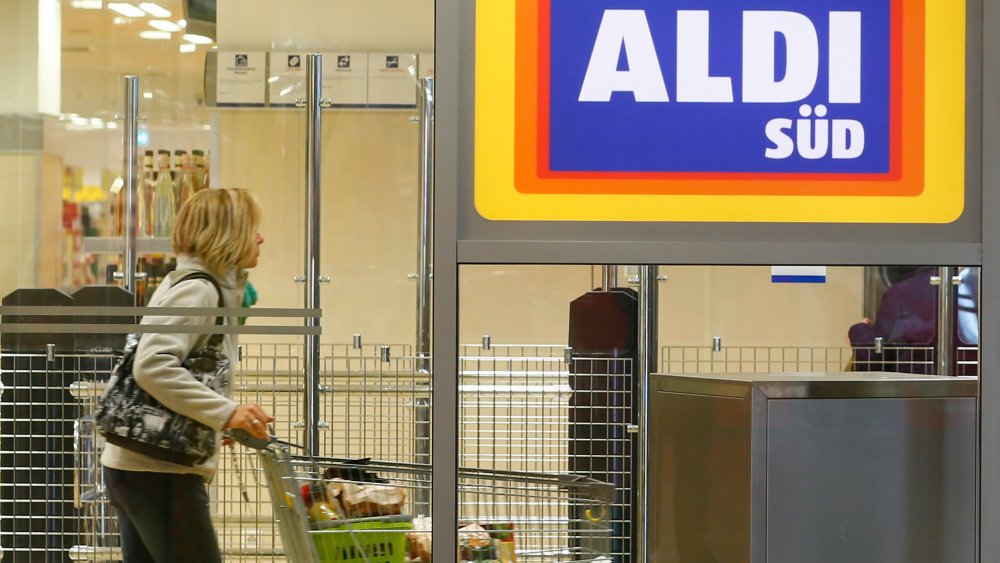The Real Reason Aldi's Cheese Is So Cheap
It's the end of September, so we expect some stores to try to preemptively exploit Halloween, but Aldi has taken the idea of holiday creep a step further. On September 15th, the International Business Times announced that Aldi's advent calendars will be available on November 4th. To assuage the existential dread brought on by the passage of time, however, realize that their Emporium Selection Advent Cheese Calendar will only be $14.99! Even though the quantity of cheese is small to fit in each day's square, that is still yet another instance of Aldi providing incredibly cheap cheese at a quality worth having.
Anyone who knows of Aldi knows about their cut-to-the-bone style that allows for prices with which even Walmart struggles to compete. In 2019, CNN ran a piece in which Greg Foran, Walmart's US CEO, said as much: "I never underestimate them. I've been competing against Aldi for 20-plus years. They are fierce and they are good." The article continues on to list the now well-known examples of why Aldi runs to efficiently: the shopping carts must be returned, which saves on wages wasted on cart runners; they only carry a small selection, as opposed to other stores.
However, these reasons don't completely explain why the cheese, in particular, is so dangerously cheap. Aldi can get away with selling good supermarket cheeses at a low price because of their practice of selling almost all their stock as a private label, a practice best illustrated by their American counterpart, Trader Joe's.
The basics of private labeling
The connection between Trader Joe's and Aldi stems from a separation of Aldi into Aldi Nord and Aldi Süd (Aldi North and Aldi South) in the 1960s. In 1971, as Mark Gardiner, author of Build a Brand Like Trader Joe's, explains, Theo Albrecht, the owner of Aldi Nord, bought Trader Joe's. The Aldis seen in the US today belong to Aldi Süd. They're competitors but operate according to the same logic.
Like Aldi, Trader Joe's relies heavily on private labels. "Private labeling," Sara Nesbitt, CEO of Coastal Carolina Soap, told Business.com, "is selling products a business makes under another company's or business's brand." Additionally, it could also mean using an ingredient supplied by a separate company to produce one's own product without attribution. The seller has to directly pay for the product's creation but has the freedom to alter it before selling it.
This arrangement allows for the cheap prices that suck people into Aldi and Trader Joe's because by cutting out the premade aspects of the product, the seller lowers the amount they need to charge to make a profit. Furthermore, doing this allows the seller to change the product however they want. This is why Aldi has an easy enough time producing a smorgasbord of cheap cheeses and advent calendars. Since they can develop their wares however they want, they can opt to redirect some of their cheese into advent calendars, an option unavailable when buying an already packaged product.
Mysteriously cheap cheese
According to a pamphlet from the 2019 Private Label Trade Show, the private label market has reached 25 percent of all US sales. While loyal shoppers at stores like Aldi and the Aldi Nord-owned Trader Joe's certainly contribute to this number, it more generally reflects how pervasive this hush-hush market practice is. The extent of this secrecy grows apparent when you attempt to find out where these foods come from. More than 90 percent of Aldi's products are private label, and their labels leave a lot to the imagination. Its cheese offerings are given vague yet aspirational-sounding names like "Emporium Selection" or "Specialty Selection" or "Happy Farms."
Eater too has commented on this phenomenon in a 2017 article about the brands behind Trader Joe's brands. Vince Dixon quotes from Gardiner's book that "Suppliers aren't allowed to say they supply Trader Joe's products and Trader Joe's never willingly talks about who their suppliers are." Yet, by looking at FDA's recalls of certain Trader Joe's offerings, you can discover that Naked Juice and Stauffer's animal crackers are among the name-brand items Trader Joe's rebrands as its goods.
Trader Joe's also likes exclusive partnerships with private labels, as might Aldi. And cheese lovers reap the benefits. Happy Farms' American cheese tastes like Kraft's version. It may be Kraft-produced for all we know, but it's cheaper. As long as we can still buy decent quality cheese at a low cost, we will happily put up with the mystery of private labeling.


